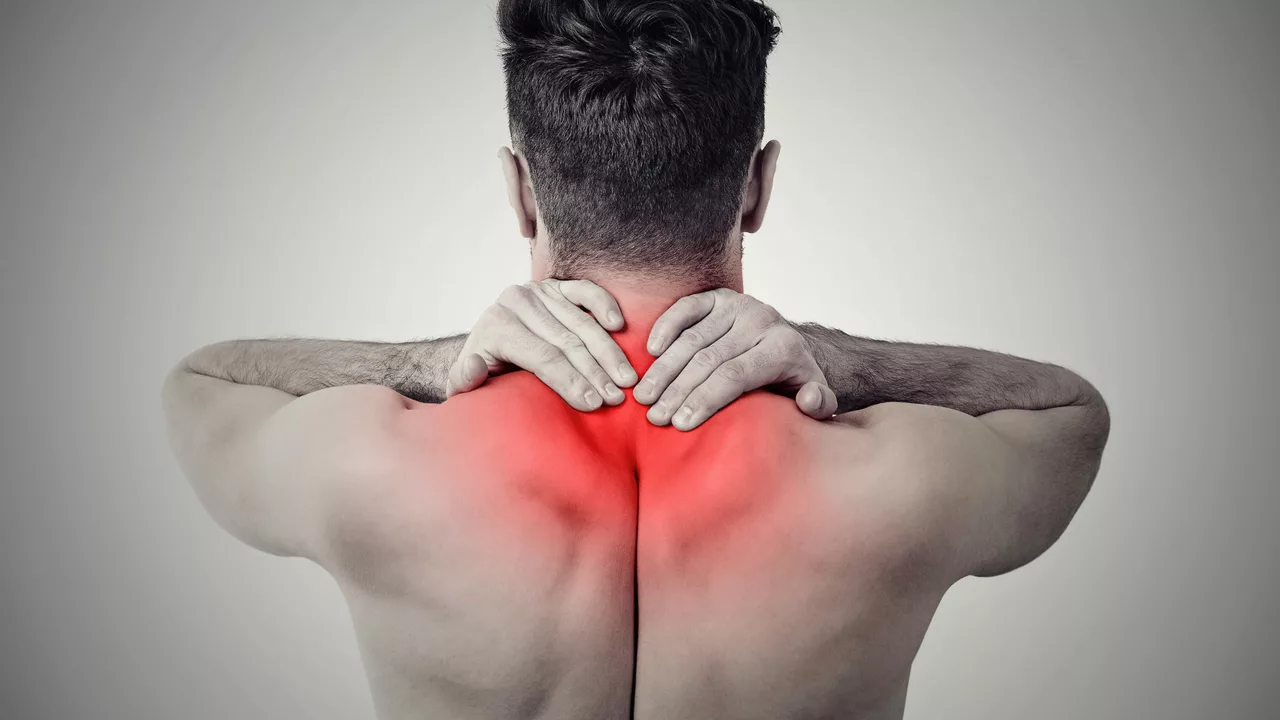Understanding Muscle Stiffness and Chronic Pain
Before we dive into the relationship between muscle stiffness and chronic pain, it's essential to understand what these terms mean. Muscle stiffness refers to the sensation of tightness or resistance when trying to move a muscle. Chronic pain, on the other hand, is a persistent or recurrent pain that lasts for months or even years.
In this article, we will explore the connection between muscle stiffness and chronic pain conditions. We will discuss various factors that contribute to this relationship and some practical solutions to improve your quality of life. So, let's begin!
The Role of Inflammation in Muscle Stiffness
Inflammation plays a significant role in muscle stiffness and chronic pain. When our muscles become injured or overused, our body's immune response triggers inflammation to protect and repair the damaged tissue. However, chronic inflammation can lead to persistent muscle stiffness and pain, as the healing process may not be completed effectively.
Furthermore, inflammation can cause the release of certain chemicals that sensitize nerve endings, leading to increased pain perception. This can contribute to the development of chronic pain conditions and exacerbate existing ones.
How Stress and Tension Contribute to Muscle Stiffness
Stress and tension can also contribute to muscle stiffness and chronic pain. When we are under stress, our body releases hormones like cortisol, which can increase muscle tension and cause stiffness. This is because our body's natural response to stress is to prepare for a "fight or flight" situation, causing our muscles to tense up.
Additionally, when we experience stress or anxiety, we may unconsciously clench or tighten our muscles, leading to muscle stiffness and pain over time. This is especially true for individuals with conditions like fibromyalgia or chronic fatigue syndrome, where stress can exacerbate their symptoms.
Restricted Range of Motion and Chronic Pain
One of the most common consequences of muscle stiffness is a restricted range of motion. When our muscles are stiff, it becomes difficult to move our joints, impacting our overall mobility and flexibility. This can lead to chronic pain as the lack of movement may cause the muscles and connective tissues to become even more tight and inflexible.
Moreover, a restricted range of motion can result in compensatory movement patterns, where other muscles and joints have to work harder to make up for the lack of movement in the affected area. This can place additional strain on these muscles and joints, potentially contributing to chronic pain conditions.
Trigger Points and Chronic Pain
Trigger points, also known as muscle knots, are tight, painful areas within a muscle that can contribute to chronic pain. These knots form when muscle fibers contract and fail to release, creating a persistent tightness within the muscle. Trigger points can cause localized pain or refer pain to other parts of the body, contributing to chronic pain conditions like myofascial pain syndrome.
When our muscles are stiff, trigger points may become more sensitive and painful, exacerbating chronic pain symptoms. Additionally, muscle stiffness can make it difficult to perform self-massage or stretching techniques that can help release trigger points, further perpetuating the pain cycle.
Reducing Inflammation to Alleviate Muscle Stiffness
One of the first steps in addressing muscle stiffness and chronic pain is to reduce inflammation. This can be achieved through a combination of lifestyle changes and medical treatments. Some effective strategies for reducing inflammation include eating an anti-inflammatory diet, engaging in regular physical activity, managing stress, and getting enough sleep.
In some cases, your healthcare provider may also recommend medications or supplements to help reduce inflammation, such as nonsteroidal anti-inflammatory drugs (NSAIDs) or omega-3 fatty acid supplements. It's essential to consult with a healthcare professional before starting any new treatment regimen.
Stretching and Mobility Exercises
Another crucial component in addressing muscle stiffness and chronic pain is improving your flexibility and range of motion. Regular stretching and mobility exercises can help to lengthen tight muscles, reduce stiffness, and improve joint mobility. This, in turn, can help to alleviate chronic pain symptoms and improve your overall quality of life.
Be sure to start slowly and gently when beginning a new stretching or mobility routine, as overstretching or pushing your body too hard can cause injury. You may also want to consult with a physical therapist or other healthcare professional for guidance on the best exercises for your specific needs.
Massage Therapy and Myofascial Release
Massage therapy and myofascial release techniques can be highly beneficial for individuals experiencing muscle stiffness and chronic pain. These therapies work to release tight muscles, break up adhesions within the connective tissue, and improve blood flow to the affected areas. This can help to alleviate muscle stiffness, reduce pain, and improve overall function.
While some individuals may find relief through self-massage techniques, it's often best to work with a trained massage therapist or other healthcare professional familiar with myofascial release to ensure proper technique and avoid potential injury.
Seeking Professional Help for Chronic Pain
If you're struggling with muscle stiffness and chronic pain, it's essential to seek professional help from a healthcare provider experienced in treating these conditions. They can help to determine the underlying cause of your symptoms and develop a comprehensive treatment plan tailored to your specific needs.
Remember that you don't have to live with chronic pain and muscle stiffness. By addressing inflammation, improving your flexibility and range of motion, and seeking the appropriate professional help, you can work towards a pain-free life and improved overall well-being.






Koltin Hammer
June 20, 2023 at 12:09
I've been dealing with this for years. It's not just about stretching or NSAIDs - it's the whole damn system. Your nervous system gets stuck in this loop where it thinks everything's a threat. Muscle stiffness? That's your body's overzealous security guard who never clocks out. I started doing breathwork and grounding exercises, and honestly? It changed everything. Not because it 'cured' me, but because it stopped my body from screaming at me 24/7.